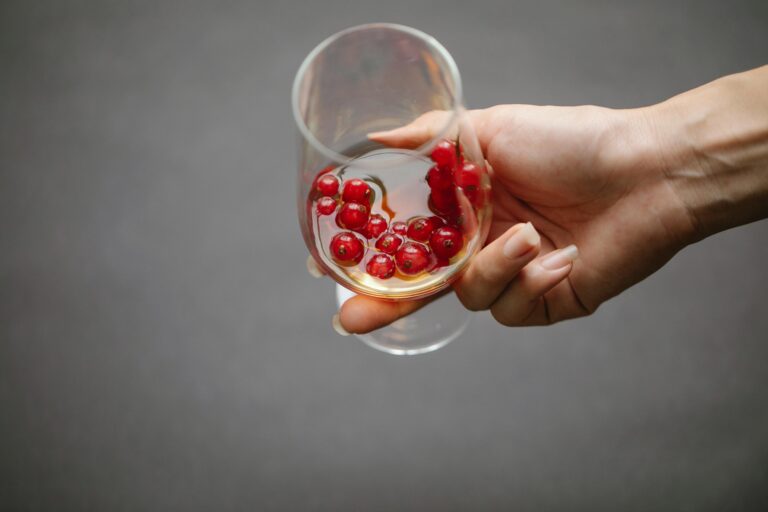Ozempic and Alcohol: What Women Should Know
If you’re using Ozempic (Semaglutide) to manage your weight or blood sugar, you’ve probably asked yourself, “Can I drink alcohol while taking Ozempic?”
It’s a common question, and the answer isn’t black and white.
While there’s no strict rule against combining Ozempic and alcohol, doing so can lead to side effects and may slow down your progress.
At Women’s Wellness of Mississippi, we work closely with women using semaglutide to help them get results safely.
If you’re thinking about having a drink while on Ozempic, here’s what you need to know to make an informed choice.
What Is Ozempic (Semaglutide) and How Does It Work?
Ozempic (Semaglutide) is a medication that helps regulate blood sugar, reduce appetite, and support weight loss.
The active ingredient, semaglutide, mimics a natural hormone in your body called GLP-1.
This hormone helps you feel full longer, slows digestion, and lowers blood sugar levels.
We offer semaglutide as part of a personalized treatment plan designed for women.
Whether your goal is to lose weight, manage PCOS, or improve your energy levels, we tailor your care to support your full health journey.
Can You Drink Alcohol While Taking Ozempic?
Yes, you can but there are a few things to keep in mind.
While there’s no direct interaction between Ozempic and alcohol, drinking can make some side effects worse.
It can also interfere with your weight loss goals, hydration levels, and blood sugar stability.
Some women tolerate alcohol on Ozempic just fine.
Others feel sick after just one drink.
It really depends on your body, your habits, and your health history.
What Happens When You Mix Ozempic and Alcohol?
Let’s look at what can happen when you mix Ozempic and alcohol:
It Can Make Nausea and Stomach Issues Worse
Ozempic slows down digestion.
Alcohol can irritate your stomach and cause bloating or discomfort.
When combined, it’s easier to feel nauseous, especially if you drink on an empty stomach or too soon after your weekly injection.
You May Experience Low Blood Sugar
This is especially important for women with type 2 diabetes.
Alcohol can lower your blood sugar, and Ozempic regulates it.
Together, they can lead to a sudden drop.
Symptoms like shakiness, sweating, confusion, or lightheadedness are worth watching for, especially after a drink or two.
Dehydration Is More Likely
Ozempic can reduce your sense of thirst, and alcohol pulls water from your body.
The result?
Headaches, dizziness, fatigue, and slower recovery from workouts.
Hydration becomes even more important when you’re on this medication.
Pancreatitis Risk May Be Higher
Both Ozempic and alcohol have been linked to inflammation in the pancreas.
While this is rare, severe stomach pain, vomiting, or fever are red flags you should never ignore.
If you feel unwell after drinking on Ozempic, reach out to your provider.
How Alcohol Can Affect Your Weight Loss on Ozempic
Alcohol is high in calories and can interfere with how your body burns fat.
One glass of wine might not seem like a big deal, but over time, regular drinking can slow your results.
Drinking also affects sleep, increases cravings, and can make it harder to stay on track with healthy habits.
Many women find that even small amounts of alcohol start to work against their goals.
If you do drink, try spacing it out from your injection day, eat beforehand, and limit yourself to one drink.
Does Ozempic Help With Alcohol Cravings?
Some women report that Ozempic naturally reduces their interest in alcohol.
There’s a recent study that found that people with alcohol use disorder drank less while on semaglutide.
While the science is still emerging, this may be an unexpected bonus for some women.
Keep in mind that this isn’t guaranteed.
If you’re drinking out of habit, emotion, or stress, it’s important to talk about that during your visits so we can support you with healthier alternatives.
What Women Should Know Before Drinking on Ozempic
Let’s take a look at some things you should consider before drinking on Ozempic:
Hormones Can Make a Difference
Hormonal fluctuations can affect how your body responds to alcohol and medication.
Some women notice more nausea or mood swings during certain parts of their cycle.
Alcohol can make PMS symptoms worse and disrupt your hormonal rhythm, especially when combined with semaglutide.
If You’re Pregnant or Trying to Conceive
Both Ozempic and alcohol should be avoided if you’re pregnant, planning to get pregnant, or breastfeeding.
It’s best to have a conversation with us so we can help you transition safely and explore other options.
Mental and Emotional Wellness
If alcohol is part of how you deal with stress or exhaustion, you’re not alone.
Many women feel this way.
Ozempic can shift your mood, energy, and hunger patterns, sometimes unexpectedly.
We’re here to help you manage those changes with a holistic approach that includes nutrition, mindset support, and personalized care.
Tips for Drinking Safely on Ozempic
Here are some tips for safe drinking while on Ozempic:
- Wait at least 24 hours after your injection before drinking
- Eat a balanced meal first, avoid drinking on an empty stomach
- Stick to one drink if possible
- Skip sugary mixers that can spike blood sugar or cause nausea
- Drink plenty of water alongside alcohol
- Avoid alcohol completely if you’re already feeling unwell or dehydrated
Listen to your body.
If something feels off, it probably is.
How We Can Help at Women’s Wellness of Mississippi With Semaglutide
Our team understands how complex weight loss can be, especially when hormones, emotions, and everyday life all play a role.
That’s why we do more than just prescribe semaglutide, we build customized plans that support your whole body.
We’ll help you:
- Understand how the benefits of semaglutide fit into your overall health
- Navigate choices like alcohol, travel, stress, and sleep
- Stay accountable with ongoing support
- Adjust your plan as your needs change
- Explore alternative treatments if needed
You don’t have to figure this out on your own.
We’re here to support your journey in a way that works for you.
Contact us to learn more today!
Final Thoughts: Ozempic and Alcohol
If you’re taking Ozempic and thinking about drinking alcohol, the key is to stay informed and listen to your body.
While a drink now and then may be fine, mixing the two regularly can create challenges for your health and your goals.
At Women’s Wellness of Mississippi, we take a personalized approach to semaglutide treatment.
Whether you’re focused on weight loss, hormone balance, or just feeling more like yourself again, we’re here to guide you with compassion and real-life solutions.
Book a consultation with us today and let’s create a plan that supports your health from every angle.
FAQs
Can you drink alcohol while taking Ozempic?
Yes, you can drink alcohol while on Ozempic, but it’s important to do so in moderation. Alcohol may increase the risk of side effects like nausea, low blood sugar, and dehydration. It can also interfere with your weight loss goals, so it’s best to limit your intake and pay close attention to how your body reacts.
Does Ozempic curb your desire for alcohol?
Some people report that Ozempic reduces their cravings for alcohol. Research is ongoing, but studies suggest semaglutide may influence brain pathways related to reward and addiction. However, this effect doesn’t happen for everyone.
Why are hangovers so bad on Ozempic?
Hangovers may feel worse on Ozempic because the medication slows digestion and can dull your sense of thirst. This makes it easier to become dehydrated and more sensitive to alcohol’s effects. When combined, alcohol and Ozempic can lead to more intense nausea, dizziness, and fatigue the next day.
How much weight can you lose on semaglutide?
Weight loss varies from person to person. Many women lose between 10–15% of their starting weight over several months with consistent use of semaglutide, especially when paired with healthy eating and lifestyle changes. Your results will depend on your body, habits, and overall health plan.
What are the side effects of semaglutide?
Common side effects include nausea, constipation, diarrhea, bloating, and decreased appetite. Some people experience fatigue or dizziness. Serious side effects are rare but can include pancreatitis or gallbladder issues. Staying hydrated, eating balanced meals, and adjusting dosage gradually can help reduce discomfort.








